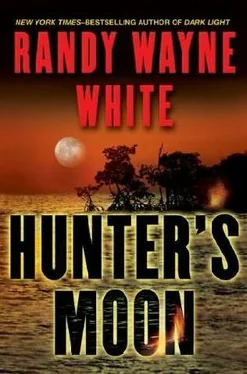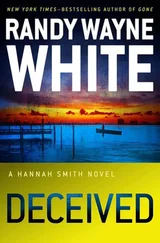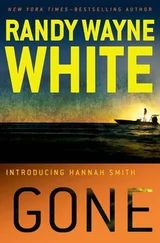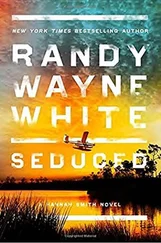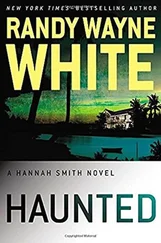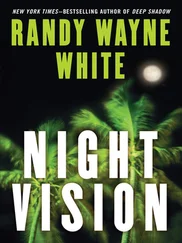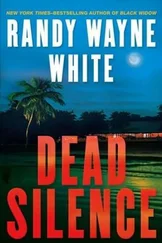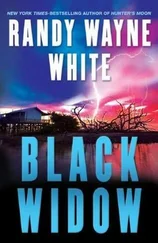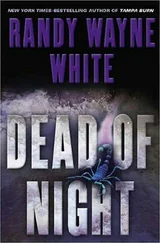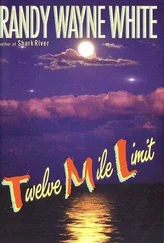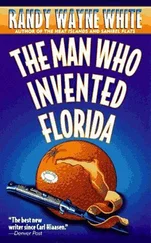Randy White - Hunter's moon
Здесь есть возможность читать онлайн «Randy White - Hunter's moon» весь текст электронной книги совершенно бесплатно (целиком полную версию без сокращений). В некоторых случаях можно слушать аудио, скачать через торрент в формате fb2 и присутствует краткое содержание. Жанр: Триллер, на английском языке. Описание произведения, (предисловие) а так же отзывы посетителей доступны на портале библиотеки ЛибКат.
- Название:Hunter's moon
- Автор:
- Жанр:
- Год:неизвестен
- ISBN:нет данных
- Рейтинг книги:4 / 5. Голосов: 1
-
Избранное:Добавить в избранное
- Отзывы:
-
Ваша оценка:
- 80
- 1
- 2
- 3
- 4
- 5
Hunter's moon: краткое содержание, описание и аннотация
Предлагаем к чтению аннотацию, описание, краткое содержание или предисловие (зависит от того, что написал сам автор книги «Hunter's moon»). Если вы не нашли необходимую информацию о книге — напишите в комментариях, мы постараемся отыскать её.
Hunter's moon — читать онлайн бесплатно полную книгу (весь текст) целиком
Ниже представлен текст книги, разбитый по страницам. Система сохранения места последней прочитанной страницы, позволяет с удобством читать онлайн бесплатно книгу «Hunter's moon», без необходимости каждый раз заново искать на чём Вы остановились. Поставьте закладку, и сможете в любой момент перейти на страницу, на которой закончили чтение.
Интервал:
Закладка:
Once again, Wilson stared at Farrish and Halibi. “You can’t possibly understand who we are. But our quandary is this: In any conflict, the boundaries of civilized behavior are defined by the party that cares least about morality.
“You have defined the boundaries and there are none. The lives of innocent women and children are meaningless. You hide weapon factories beneath day care centers. You hide collectively behind the caskets of innocents. You have no morality, no character, no conscience, while most people around the world are blessed-and burdened-by all three.
“Fascism has worn many costumes. Yours is religion. That makes it even more difficult, but we will find a way. Appeasement is suicide. The world is beginning to understand that.” He paused, then pointed directly at them. “Your cowardice only strengthens our resolve. Your hatred stands no chance against our prayers.”
He returned his attention to the crowd. “Thank you. God bless you, and God bless Panama.”
Wilson closed the leather folder and stepped back from the podium.
The crowd’s applause was loud, much louder than when he’d been introduced, and Wilson paused to acknowledge it. He nodded to Juan Rivera. “Would you agree, General?”
Rivera marched to Wilson, gave him a bear hug, then exhorted the startled audience in Spanish, “You have just heard a man speak! Have you forgotten what it’s like?”
The applause grew.
Wilson smiled. He looked happy; a man at peace, standing with his old enemy. It may be the happiest I had ever see him.
Then he turned and walked toward Thomas Farrish and Altif Halibi.
With the scope’s crosshairs on the president’s back, I moved my index finger to the trigger guard.
As Wilson approached, Farrish was looking over his shoulder. He began gesturing to his bodyguards. The cleric Altif Halibi refused to make eye contact with the former president. It was more than disinterest; he radiated contempt. To acknowledge a kuffar -an “infidel cow”-was beneath him.
The crowd, I realized, had suddenly gone silent. The Panamanian police watched with interest. Wilson was still wearing the microphone and they wanted to hear what he would say.
Wilson addressed the two men as if they were one. He said softly, “I accept your invitation. Here it is. Give me the money.”
Farrish was snapping his fingers, trying to get security to intercede. I moved the crosshairs from the president’s back to Farrish’s head- tempting -as Farrish said, “What do you mean, ‘It is here’? What is here? I have no idea of what you are saying.” The man had spent his playboy years in the U.K.; the accent was British.
“You wanted my head. Here it is.” Wilson tapped his temple. “You owe me a million dollars. I’m donating the money to Panama’s orphanages.”
Farrish laughed, but it was nervous laughter. The cleric stood, his hands folded into his robes, but he stopped when Wilson said, “What are you afraid of? I’ll make it easy.”
I watched Wilson reach inside his jacket… and I saw the fear in the cleric’s eyes as he drew the curved knife-the badek, an instrument made for killing infidels.
Someone in the audience screamed; everyone began moving, then-Vue, Farrish’s bodyguards, the police. But they stopped when Wilson tossed the knife at the cleric’s feet. His voice was loud enough now to echo in the noon silence. “Go ahead. I’ve brought you my head, cut it off! Sunlight’s a great disinfectant-for everyone but cowards.”
Farrish stood. “I have had enough of this insanity!”
Wilson said, “And so have I.” Then he slapped Farrish across the face, just as our seventh president, Andrew Jackson, had once done to a man who insulted his wife.
Rivera had placed himself between the bodyguards and the two men. The security police had closed ranks, but now more as admiring spectators.
Farrish was holding his cheek. His skin had the flushed, mottled look of a man who is frightened and in shock.
Wilson moved close enough to brush both Halibi and Farrish with his chest. “You offered a reward for my head. I want the money. Now. Or satisfaction. I’m challenging you to a duel. If you have the courage, face me.”
Farrish looked at the cleric, the cleric looked at Farrish-then they both slid past Wilson, who remained solid as a statue.
The two walked swiftly toward the exit.
EPILOGUE
At noon, November 27th, a Thursday, Tomlinson and I boarded Amtrak’s Silver Star in Tampa, kicked back in our respective sleeper cars, enjoying beverages and an elegant dinner. Eleven hours later, we disembarked beneath a blazing full moon in the village of Hamlet, North Carolina, population 6,018.
Hamlet’s train station, with its Victorian Queen Anne gables, wood painted and polished bright, may be the most beautiful in America. Kal Wilson and blues icon John Coltrane were born nearby.
Tomlinson had stood by the tracks, in a circle of yellow light, watching our train pull out, gathering speed northbound toward Raleigh, Richmond, D.C., and Grand Central Station, New York.
“A time warp,” he said.
The city’s main street was deserted an hour before midnight. No one else had gotten off the train, and the upstairs station windows were dark, save for one where the silhouette of a stocky man was hunched over a typewriter-or maybe a telegraph key.
“The moon’s bright enough, we should’ve brought our ball gloves,” I told him. We could have played in the middle of the street, no problem.
My arm felt good. Two weeks after returning from Panama, General Juan Rivera had met us at the Presidential Library in Minnesota. We’d gotten a sandlot ball game going with some local kids and Rivera had pitched three innings of shutout ball. Next day, we received VIP treatment, and a special tour of the Wilson Center.
The president himself had welcomed us into his office, then took us next door to show us the First Lady’s office. There was a concert grand piano, and Tomlinson had played “Moonlight Sonata” and “Clair de Lune” until a nurse noticed that Wilson was weakening. We pretended not to see the wheelchair she’d left around the corner.
The three of us said good-bye with the forced but courageous good humor that friends draw upon when they know they may never meet again.
But we would meet again. two days earlier, Vue had telephoned unexpectedly and invited us here, to Hamlet, saying, “He wants to see you.”
As Tomlinson had once observed, it’s impossible to say no to a man like Kal Wilson.
So we booked sleeper cars and took the train. We didn’t even consider flying commercial. We would have had to land in Charlotte, then there would have been a two-hour drive southeast.
Besides, we wouldn’t have enjoyed flying commercial after the way we’d returned from Panama.
The White House was so delighted with Wilson’s speech, and the reaction it had received worldwide, that the president had sent Air Force One as special thanks. He had insisted it be designated Air Force One, even though it carried a former president.
Shana Waters was aboard. She thought it was hilarious when, somewhere over the Caribbean, Tomlinson signaled for Wilson’s attention and said, “Sam, I don’t want to put you in an awkward spot, man, but”-Tomlinson had looked at Waters-“there are a couple adventurous types aboard who’d like to be the first to smoke a doobie aboard this fine aircraft.”
Wilson had chuckled, but then said, seriously, “You’d need a time machine, I’m afraid. I’m fairly certain you wouldn’t be the first.”
Tomlinson liked that. “Wow,” he said. “Radical.”
Later, Waters came to me, stood on tiptoes, and whispered another adventurous suggestion. When I said, “I think we’d need a time machine to be first at that, too,” she was not dissuaded.
Читать дальшеИнтервал:
Закладка:
Похожие книги на «Hunter's moon»
Представляем Вашему вниманию похожие книги на «Hunter's moon» списком для выбора. Мы отобрали схожую по названию и смыслу литературу в надежде предоставить читателям больше вариантов отыскать новые, интересные, ещё непрочитанные произведения.
Обсуждение, отзывы о книге «Hunter's moon» и просто собственные мнения читателей. Оставьте ваши комментарии, напишите, что Вы думаете о произведении, его смысле или главных героях. Укажите что конкретно понравилось, а что нет, и почему Вы так считаете.
